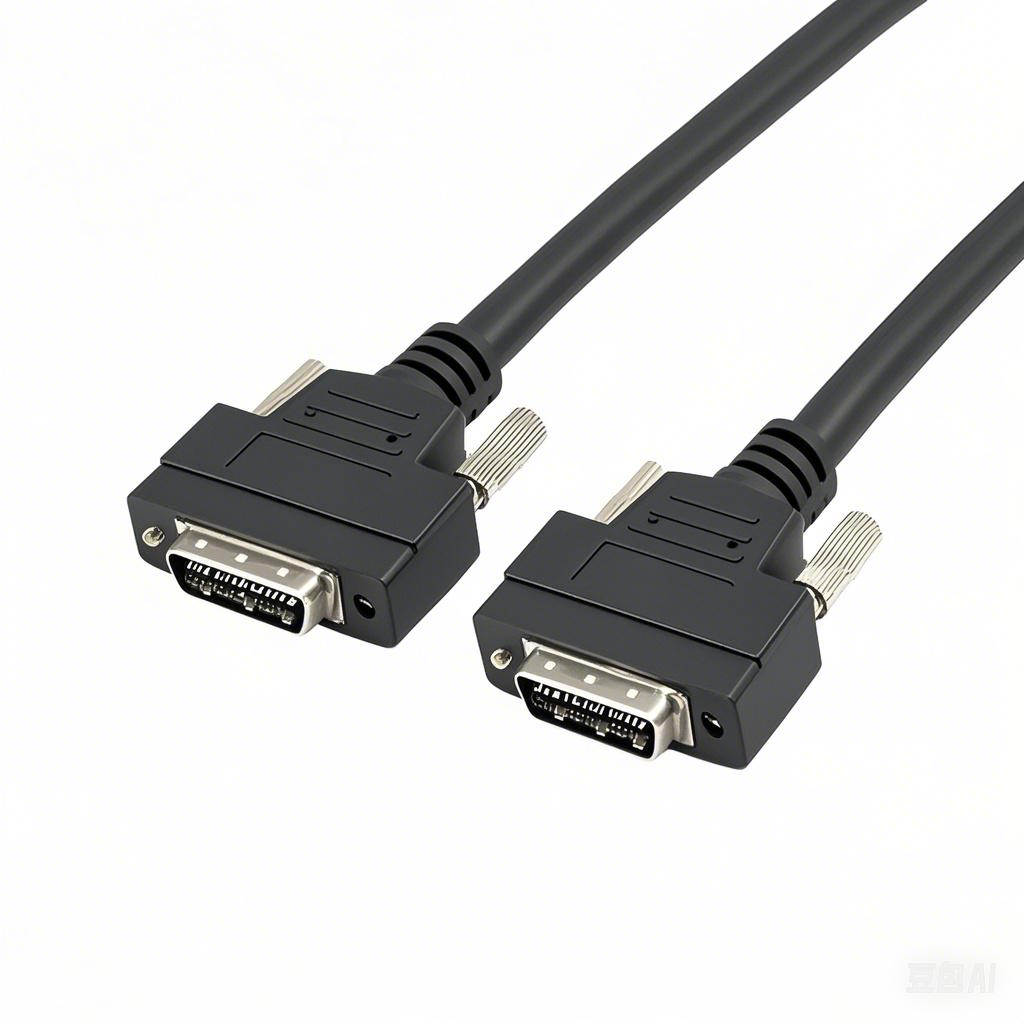IP67-Rated Machine Vision Cables: Essential Reliability for Demanding...
In the demanding world of industrial automation and machine vision, environmental factors pose constant threats to system uptime and image quality. Wet conditions – whether from washdowns, condensation, humidity, rain, or splashes – are particularly hazardous for sensitive electronic components. Standard machine vision cables simply aren’t built to withstand this assault, leading to premature failure, costly downtime, and compromised inspection results. This is where IP67-rated machine vision cables become not just an option, but a critical necessity.
Understanding the IP67 Rating: What Does It Mean?
The IP (Ingress Protection) rating system, defined by the international standard IEC 60529, classifies the degree of protection provided by enclosures against intrusion from solid objects (like dust) and liquids. The IP67 rating specifically signifies:
- First Digit (6): Complete Protection Against Dust. The cable’s connector and termination points are completely sealed against dust ingress. No harmful dust deposits can interfere with electrical contacts or internal components.
- Second Digit (7): Protection Against Immersion. The cable assembly can withstand temporary immersion in water up to 1 meter (approximately 3.3 feet) deep for up to 30 minutes without allowing harmful water ingress.
Why Standard Cables Fail in Wet Environments
Standard machine vision cables, even those with decent strain relief, lack the specialized sealing required for wet areas. Common failure points include:
- Connector Interfaces: Water and contaminants seep into the connection points between the cable and the camera, lens, light, or host system (PC, frame grabber, vision controller), causing corrosion, short circuits, and signal degradation.
- Cable Entry Points: Where the cable jacket meets the connector backshell is a prime vulnerability if not hermetically sealed.
- Cable Jacket Damage: Repeated exposure to moisture, chemicals (often present in washdowns), and physical stress can degrade standard jackets, leading to cracks and eventual water penetration into the conductors.
The Critical Advantages of IP67-Rated Machine Vision Cables
Investing in IP67-rated cables delivers significant operational and financial benefits:
- Unmatched Reliability in Wet Conditions: The core benefit. IP67 cables are engineered to perform flawlessly under high-pressure washdowns, in environments with constant condensation (e.g., refrigerated areas), exposed to rain or splashes, and even during accidental submersion. This drastically reduces unexpected failures.
- Maximized System Uptime & Reduced Downtime Costs: Cable failures are a leading cause of unplanned downtime in vision systems. IP67 cables prevent moisture-related outages, keeping production lines running smoothly and avoiding the high costs associated with halted operations and emergency repairs.
- Longer Service Life & Lower Total Cost of Ownership (TCO): By resisting corrosion, water damage, and dust ingress, IP67 cables last significantly longer than standard cables in harsh environments. While the initial investment might be slightly higher, the extended lifespan and reduced replacement frequency lead to substantial savings over time.
- Consistent, High-Quality Image Acquisition: Moisture ingress can cause signal noise, dropouts, or complete failure, leading to blurry images, inspection errors, and false rejects/accepts. IP67 protection ensures stable signal transmission, guaranteeing the image quality needed for accurate and reliable vision inspections.
- Protection Against Dust and Debris: The IP67 rating’s dust-tightness (IP6X) is crucial in environments like metalworking, woodworking, or any setting generating fine particulates that can clog connectors and impair performance.
- Enhanced Safety: Preventing electrical shorts caused by water ingress reduces the risk of electrical hazards, protecting personnel and equipment.
Key Applications Demanding IP67 Machine Vision Cables
Any machine vision system operating where moisture or dust is present benefits from IP67 cabling. Prime examples include:
- Food & Beverage Processing: High-pressure washdowns with caustic cleaners are routine. IP67 cables are essential for cameras inspecting fill levels, labeling, seal integrity, and product quality on processing and packaging lines.
- Pharmaceutical & Medical Device Manufacturing: Strict hygiene protocols require frequent cleaning and sterilization. IP67 cables ensure reliability in cleanrooms and washdown areas.
- Automotive Manufacturing: Environments involving coolants, oils, welding splatter, and wash stations necessitate robust cable protection for robotic vision guidance and quality control.
- Packaging: Bottling lines, canning operations, and other packaging machinery often involve moisture from product spills or cleaning.
- Outdoor Vision Systems: Inspection systems exposed to rain, snow, or high humidity (e.g., logistics, agriculture, traffic monitoring) require IP67 protection.
- Chemical & Industrial Manufacturing: Plants dealing with liquids, vapors, or dusty processes.
- Automated Guided Vehicles (AGVs) & Mobile Robots: Operating in dynamic environments, including potentially wet factory floors or outdoor areas.
Choosing the Right IP67 Machine Vision Cable: Key Considerations
Not all IP67 cables are created equal. Ensure you select the optimal solution:
- Connector Type: Match the connector precisely to your camera, light, and host interface (e.g., M12/M8 for GigE Vision, USB3 Vision; ruggedized versions of standard connectors).
- Cable Type & Protocol: Choose the cable technology (GigE, USB3 Vision, CoaXPress, Camera Link) required for your bandwidth and distance needs. Ensure the IP67 rating applies to the entire assembly, including connectors.
- Jacket Material: Look for durable, chemical-resistant, and flexible jackets suitable for the specific environment (e.g., PUR for excellent oil/fuel resistance and flexibility, TPE for broad chemical resistance). Consider flexibility needs for robotic arms or moving parts.
- Strain Relief: Robust strain relief at the connector is vital to maintain the seal integrity under constant movement or tension.
- Length: Ensure the cable length meets your application requirements without compromising signal integrity (especially for protocols like USB3 Vision over longer distances).
- Vendor Reputation & Warranty: Source cables from reputable manufacturers specializing in industrial connectivity with proven quality control and reliable warranties.
Beyond IP67: When Higher Protection is Needed
While IP67 is ideal for most wet conditions and temporary immersion, consider:
- IP68: For cables intended for prolonged immersion under higher pressure (depth specified by manufacturer).
- IP69K: Specifically designed to withstand high-pressure, high-temperature washdowns common in food processing and heavy industry. This rating ensures protection against close-range, high-impact water jets.











